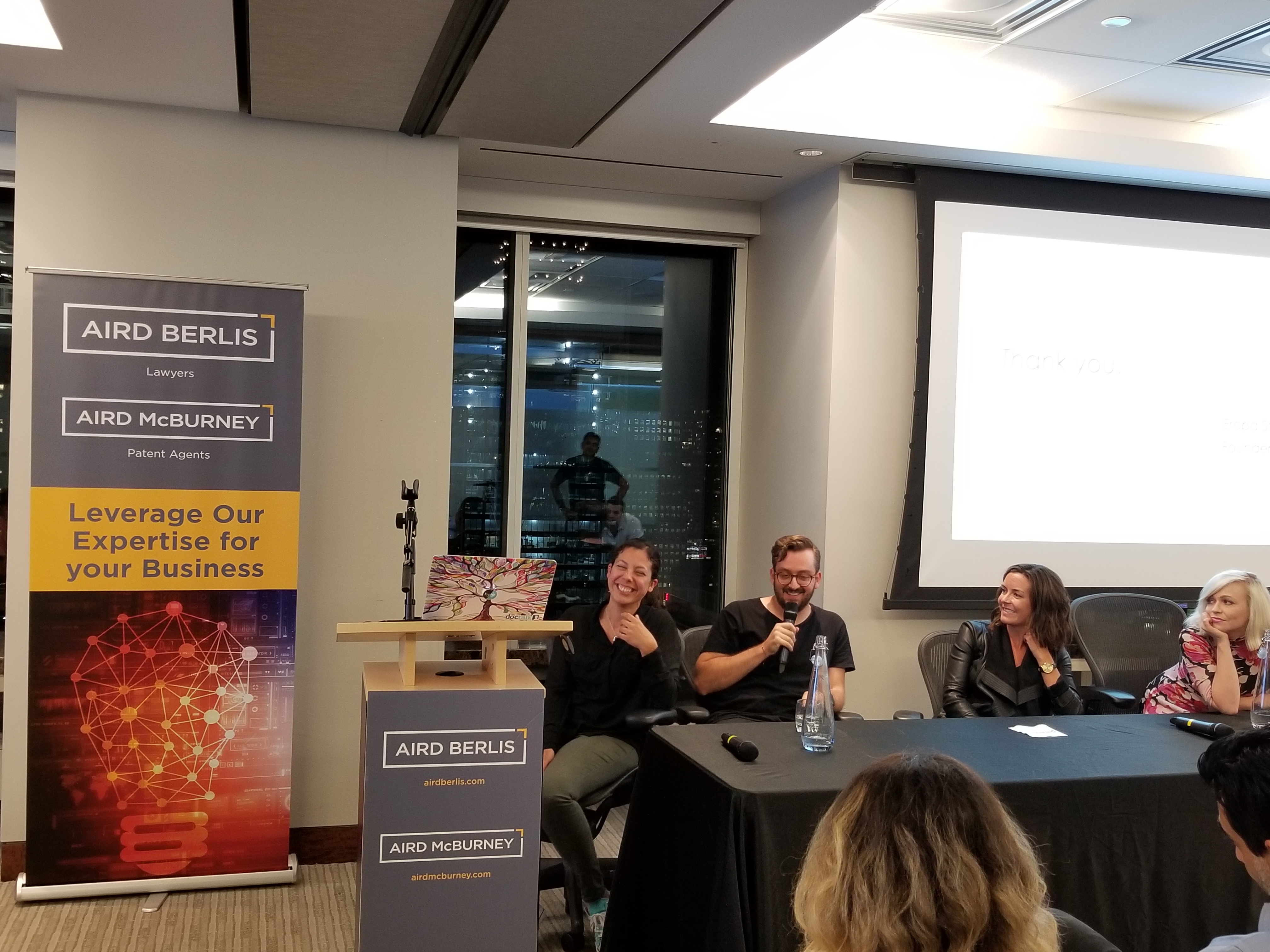Featured Interview - Andrew Graham, CEO & Co-Founder of Borrowell - Part 1

We sat down with the CEO of Borrowell, Andrew Graham, to discuss the Canadian FinTech landscape and building a FinTech company. Borrowell is emerging from a cluster of financial technology startups to revolutionize financial services in Canada. Their seamless online platform matches capital with loan seekers at comparable or even lower interest rates than banks - all possible due to the lack of overhead from branches and bureaucracy. What follows is Part I of a two-part interview series:
Andrew, we're very glad to be here with you. Tell us about your adventure!
Sure - I'd be happy to share our story. Before Borrowell, I was working at a mid-sized bank. That's where I discovered that many Canadians want alternatives to the existing financial institutions in Canada. We're at a point when technology is starting to radically change financial services all around the world, but relatively little of that change has come to Canada.
Our vision is to transform consumer lending in Canada in order to make borrowing faster, friendlier and fairer. There is $80 billion in credit card debt in Canada - much of it carried at rates of 20% or higher. If we can help people reduce that debt to a much lower rate, we would consider it a big success!
This past April marked the public launch of our first products - a three-year term loan and a five-year term loan. They are both great options for Canadians looking to pay down higher cost debt or simply looking for an easy personal loan alternative to borrowing on their credit cards. Our website only takes a few seconds, and minimal entry of personal information, to let consumers know whether they qualify for a loan, along with its respective interest rate. There is no going into a branch or waiting days for an answer.
What are your interest rates?
The bulk of our loans fall between 5.6% and 18% and our average interest rate is 13%. These rates are meant to target the prime consumer. We are not a high risk lender charging high interest rates. By way of comparison, a typical credit card charges 19.9% interest.
And what are some of the key challenges facing a FinTech company in Canada?
First of all, we live in a very regulated space. Not to mention, in our case, the rules are different from province to province. There is regulation around how you treat consumers, when you can lend money, what you must disclose, and what kinds of documents are required to enter into a loan agreement. On the other side, dealing with investors has its own set of regulations and particularities. Since our business faces both borrowers and lenders, we have to be conscientious around the structure of our company in that sense as well.
So when you started out, did you sit down and map out everything that needs to get done in order to get off the ground? Or did you just start building, iterating and learning as you went along?
Probably a bit of both! Before we could feel comfortable raising money, we needed to have conviction that there was a clear path to building this kind of business in a way that would be compliant from a regulatory perspective. To get that assurance and conviction, I had to invest some of my own money. Once we were in the process of actually building a company, raising enough money and having a bigger team, we could spend a lot of time on actually designing the structure of the company and ensuring that it conforms to rules in all the provinces.
Our business is very specific - we have 28 different interest rate tiers based on the credit background. Looking across our team, we have a group of all-stars in every position - risk, technology and capital markets. I think that's the key to getting this very complex business off the ground.
What can you tell us about building a team? Is there anything unique you are doing to identify and land star talent?
My partners and I have very high standards. We would rather keep a position open than compromise on the right candidate. The entire team spends a lot of time recruiting and hiring because we think it is so important. It is the kind of thing where there are only so many hours in the day, but it is a place where we consciously make the choice to dedicate a lot of our time.
There are different ways to do it. We have not really used much external help, with the exception of some friends at an executive search firm. For the most part, we handle recruiting on our own. It is a lot of networking, going to events, and using LinkedIn. It is an area where I invest a lot of my own time because I like doing it and I think I have a pretty good network in Toronto.
Since you mention Toronto, what are some of your thoughts on doing business in Canada?
From a regulatory perspective, Canada is very different from the United States or from other jurisdictions in how we treat investor protection. The United States has one national security regulator while in Canada we have provincial security regulations. The models that are permitted in Canada are just not the same as other places. Other jurisdictions have had true peer-to-peer lending with individuals investing money, $1,000, $5,000, $10,000 at a time, on a large scale. For example, that there has been activity in this space in the United Kingdom for about 10 years. In Canada peer-to-peer lending is still more of a challenge so we have adapted our business model to conform to what is permitted in Canada.
The bottom line is that fundraising in Canada was not easy or quick, but in the end we are thrilled with where we ended up. We had a unique challenge because our business idea needed capital for more than the typical operational costs. I had conversations with angel investors and VCs and a number of investors who would be interested in our ideas but expressed reluctance at being the first to take their chance on us. It would not be unusual to have investors request a track record of our lending, which is impossible to do when you are a start-up. Ultimately, our fundraising path took a lot of conversations to figure out, but the idea is that you learn from those conversations - and that gives way to strategy.
When you were fundraising, did you have a prototype that you could show or was this still a pitch?
It was still a PowerPoint presentation. I think it was powerful though because a lot of components of the team were together at that point. During the presentations, our selling point was our great team and the fantastic track record for this kind of business in other markets. We would discuss why Canada is the right opportunity and how we can solve the regulatory and compliance issues. Basically, here we are, and we are ready to go.
One of the topics that people debate heavily is when is the right time to go all in? It seems to be in Silicon Valley that people are much more comfortable jumping without a safety net whereas Canadians tend sort of wait and see how things are playing out before they quit their day jobs. Was that part of your experience?
I think it is a very personal decision. When I have people with ideas approach me for advice I tell them that the process of building a business plan and fundraising is so much harder if you have a job. There is always a distraction with a day job and you risk sending a pretty strong signal that you do not believe in this enough to leave your day job.
Whereas if you actually leave a job, and you say listen 'I left my job, that is how much I believe in this,' my reaction would be, 'wow, if you are willing to leave your job and invest your time and the opportunity cost of lost salary, then you must really believe in this.' So I think it can be a mistake to say, 'well, I am just going to stay in my job until I can really flush this out and find an investor.' That makes it harder on yourself and less likely that you'll find an investor.
For me, focusing on Borrowell all day was very clarifying. Every day, I would say, 'if I am not bringing home a salary I better be making progress,' right? I worked on this full time from the start, from January 2014 until we raised money in November. There were - and still are - lots of scary moments, but that's life in a startup!



